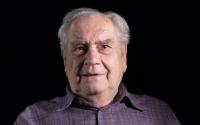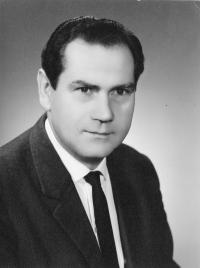Loners did not want to join cooperatives

Stáhnout obrázek
Bohumil Hrabák was born on June 29, 1925, in Ouběnice, district of Příbram. His father František Hrabák was a small farmer and his mother Alžběta was a glover. He trained as a tailor and from March 17, 1943 he was on forced labour with Hübscher Nürnberg, based at Kopitz bei Brücks, where he worked as a labourer mending the roads. It was here that he witnessed the raid at Göring Werke and on April 28, 1944, he fled Kopitz. Until October 1944 he hid in the forests around the Vltava and then, until the end of the war, at home. After the war he worked as a tailor, glover and as a miner in Mníšek pod Brdy. From 1947 to 1949 he stayed in the military service and then, in 1950, he trained as a livestock specialist. In 1950 to 1960 he worked as an agricultural clerk in Dobříš and it was in this position that he took part in the collectivisation process in the region. In 1960 he was the chief livestock specialist in Třebotov cooperative near Prague, From 1961 to 1975 he was again at the agricultural department, this time in Příbram. In 1975 he served as the chairman of the Hluboš cooperative for a year and from 1976 to his retirement in 1985 he was the HR manager at Tochovice farm.

